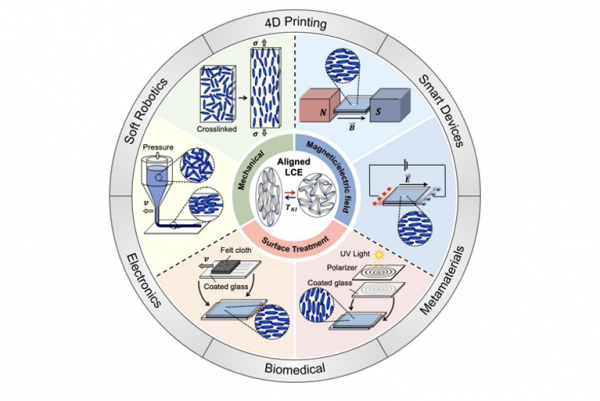Recent Advances in Molecular Programming of Liquid Crystal Elastomers with Additive Manufacturing for 4D Printing
- Journal
- Molecular Systems Design & Engineering
- Vol
- 7
- Page
- 1588 - 1601
- Year
- 2022
- File
- 2022_Mol. Syst. Des. Eng..pdf (12.6M) 3회 다운로드 DATE : 2022-10-25 21:54:35
Liquid crystal elastomers (LCEs) are crosslinked polymers within which liquid crystal molecules are linked with elastomeric polymer chains. Various anisotropic materials properties of LCEs can be created through an orientational control of mesogens during fabrication process. In particular, LCEs exhibit reversible mechanical deformation along the direction of mesogen alignment in response to various external stimuli. Therefore, when properly associated with a suitable additive manufacturing process, LCEs can be fabricated to a 3D object that displays programmed stimuli-responsive deformation. Thus, LCEs offer a potential breakthrough in 4D printing as an alternative material solution that overcomes the limitations of typical 4D printing materials such as shape memory polymers and hydrogels. The orientational order of mesogens in LCEs can be controlled by a wide range of methods, including mechanical stretch, viscous shear flow, magnetic/electric-field, and surface treatment. We review herein the physical principles of the key methods for LCE molecular programming and recent advances in additive manufacturing processes that utilize these principles to enable 4D printing with LCEs. Various applications of additively manufactured LCEs are also highlighted.



